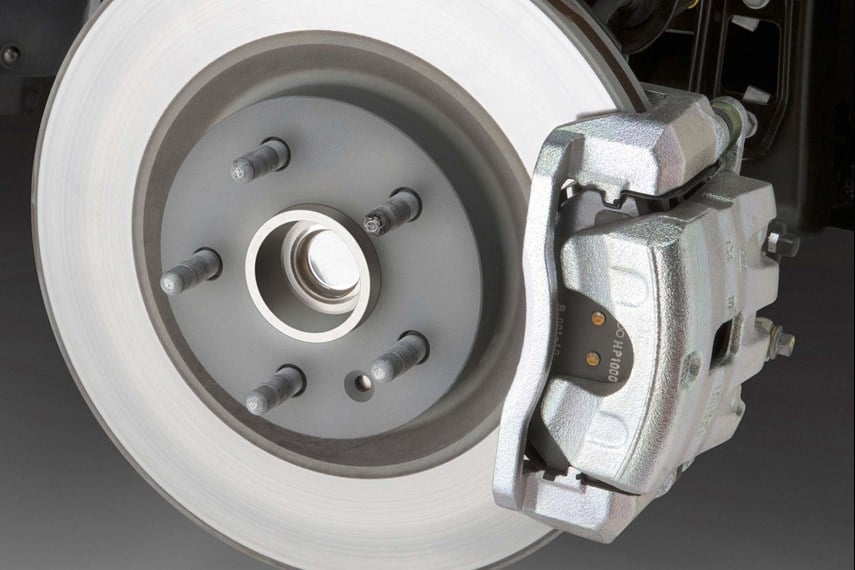Sign up for our weekly email to stay on top of the latest news and insights!
Source: The following is excerpted from a piece by Justin Pritchard posted by autoTRADER.ca providing consumers with a guide in determining if their vehicle’s brake pads need replacement. autoTRADER.ca has material for Canadian consumers, dealers and repair centers.
Whenever you press the brake pedal in your car, a sequence of events takes place that sees hydraulic fluid pressure squeeze your brake pads against your brake rotors. This creates the friction used that’s used to slow your car down.
You might be familiar with the rim brakes used on a basic bicycle: You squeeze the handle, and rubber pads clamp the spinning wheel rim of the bike, creating friction and heat, and resulting in deceleration. The brakes in your car or truck work on the same principle.
Related post:
ZF Develops Cleaner Production of Brake Pads
In either case, remember that the brake pads in your vehicle are like the eraser on a pencil: they wear out a little bit every time you use them until they need to be replaced.
Replacing brake components in a timely fashion is important because stopping isn’t optional and if you’re driving a car with worn-out brakes, your ability to stop quickly and safely is compromised.
Thankfully, your brakes will provide warnings that you’re due for a brake job. Moreover, proper, professional maintenance on a regular basis will keep those brake components lasting their longest and reveal possible braking system problems that need to be addressed.
Here’s what you need to know.
Many Variables at Play
There’s no correct answer to the question “How long do brakes last?” since many variables affect the longevity of your pads and rotors. These include the quality of the pads and rotors themselves, the vehicle you drive, how and where it’s driven, and your individual driving style.
Brakes in a vehicle that’s driven moderately and properly maintained will tend to last longer than brakes in a vehicle that’s frequently driven hard, used to tow heavy trailers, or driven frequently in hilly terrain.
Environmental factors may play into the lifespan of your vehicle’s braking system, too. For instance, frequent exposure to salty, wet roads may cause accelerated rust formation on various parts of your braking system, which can lead to accelerated wear and diminished performance.
Vehicles used frequently in dusty or off-road settings may experience faster-than-expected brake component wear, too.
Maintenance is Key
The owner’s manual for your vehicle specifies a schedule for braking system inspections and servicing, perhaps on an annual basis. The intent is to have a professional technician inspect and assess your vehicle’s brakes regularly.
During this process, various components in the system can be cleaned, lubricated, and reconditioned, extending their life. Sticking to this maintenance schedule can ensure more consistent stopping performance and longer component life.
Conversely, failing to regularly service your brakes can cost you money in the long run, leave you with sub-par stopping power, and even void any applicable remaining warranty coverage on your newer vehicle’s brakes. The entire post can be viewed by clicking HERE








